Great recognition for our Clisson 2016 among Alexis Goujard’s selection of “Sixteen great Muscadet over time” – Exotism, solar power and tension
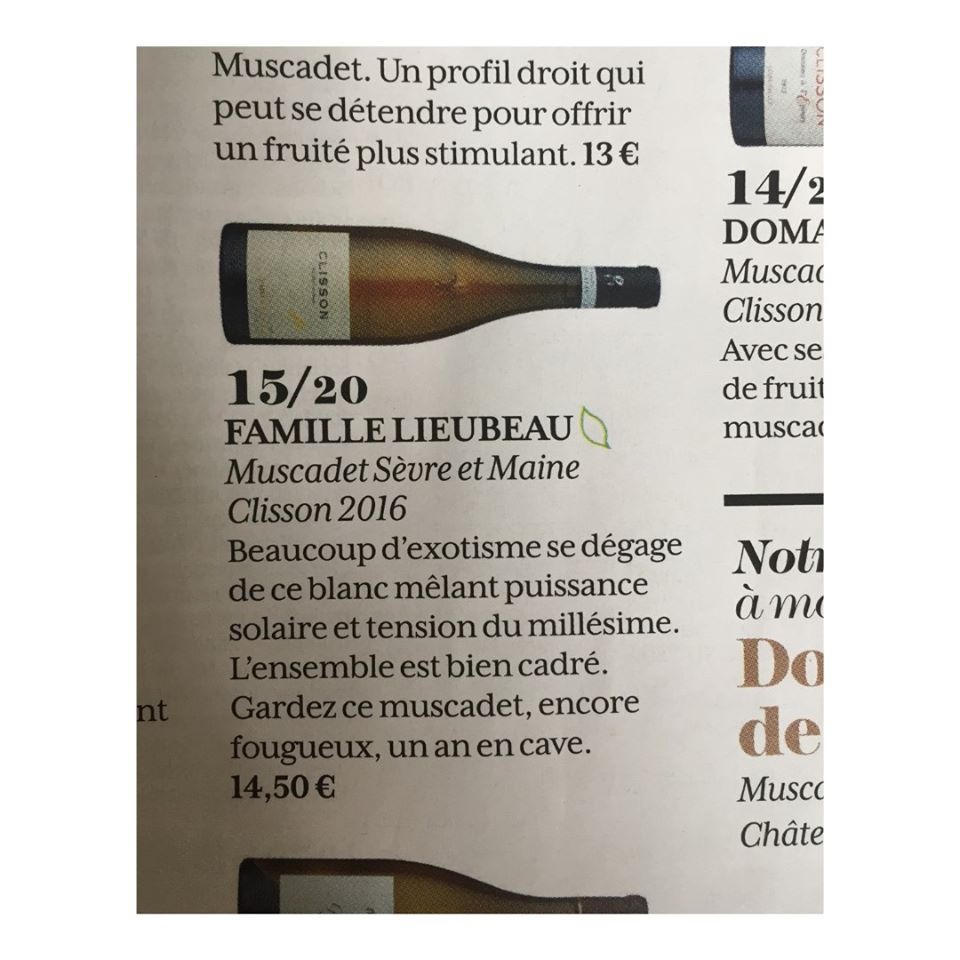
Great recognition for our Clisson 2016 among Alexis Goujard’s selection of “Sixteen great Muscadet over time” – Exotism, solar power and tension

 Clos de la Placelière
Clos de la Placelière
AOP Muscadet Sèvre et Maine
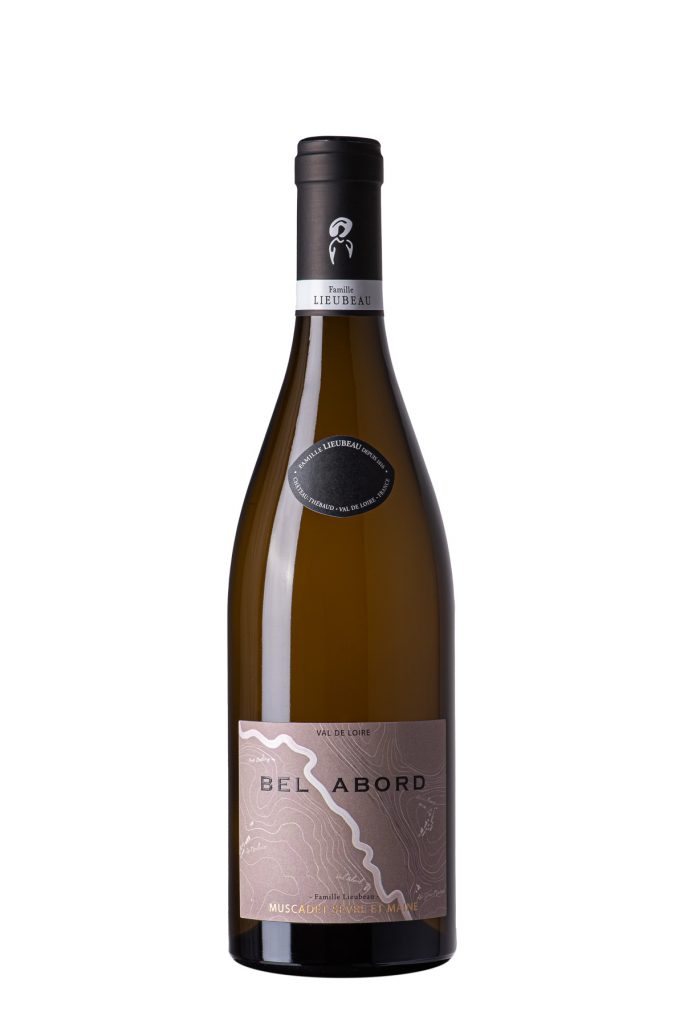 Bel Abord
Bel Abord
AOP Muscadet Sèvre et Maine
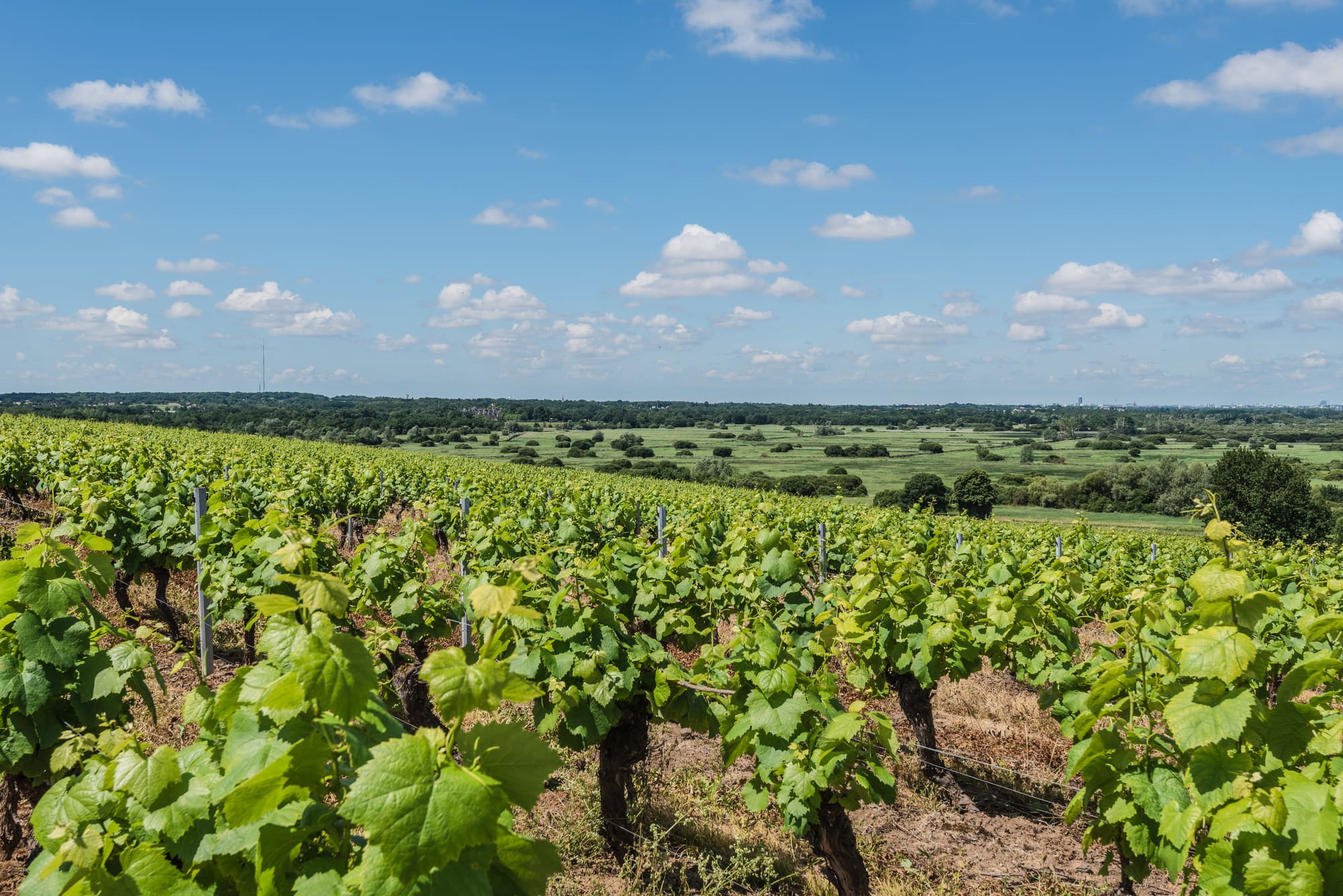
La Butte de la Roche towers over the Goulaine marshes like the bow of a ship and its slopes are the first harvested of the region
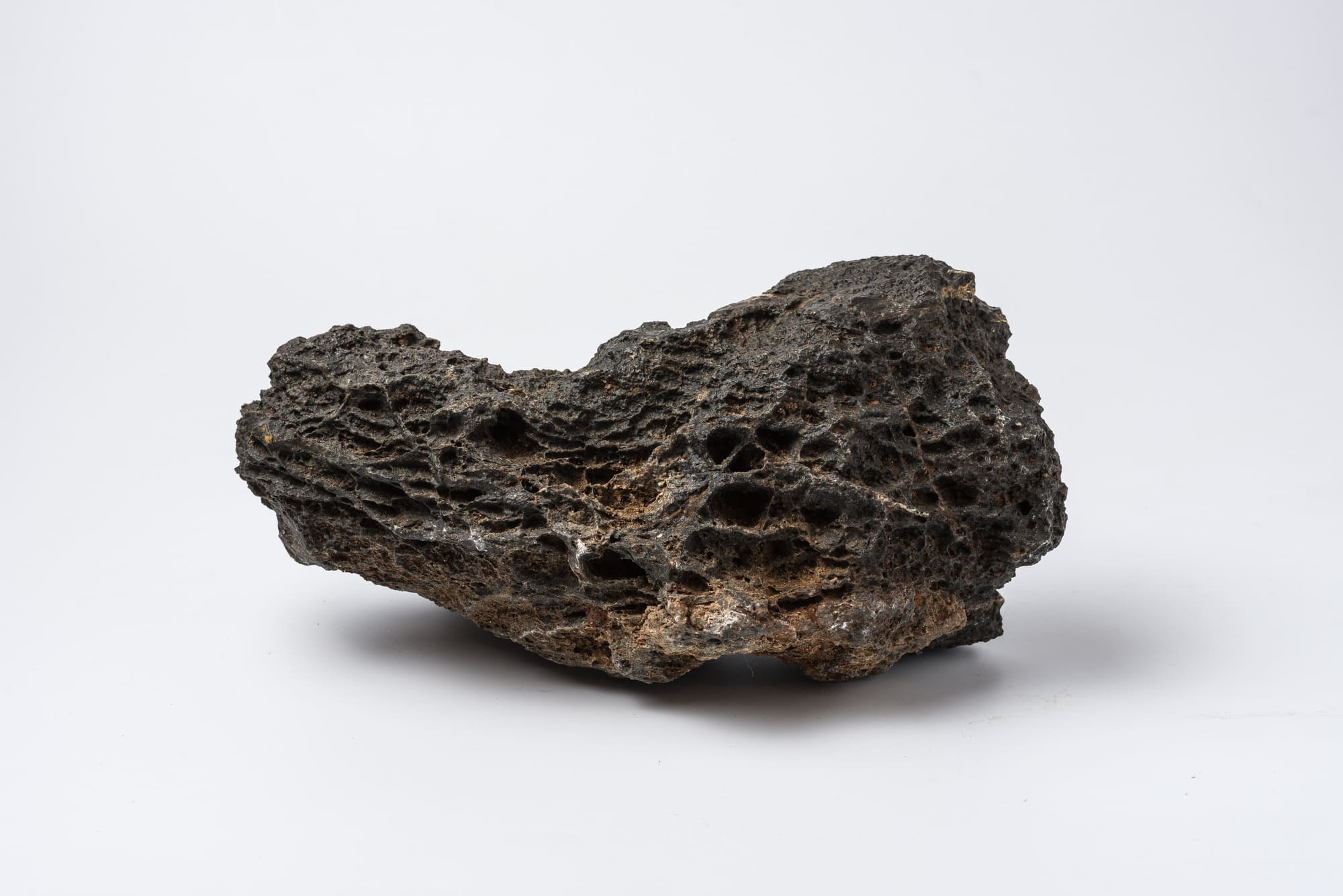
Serpentinite is a rare rock which originates from the earth’s mantle. It owes its name to its green shimmer and scaly appearance.
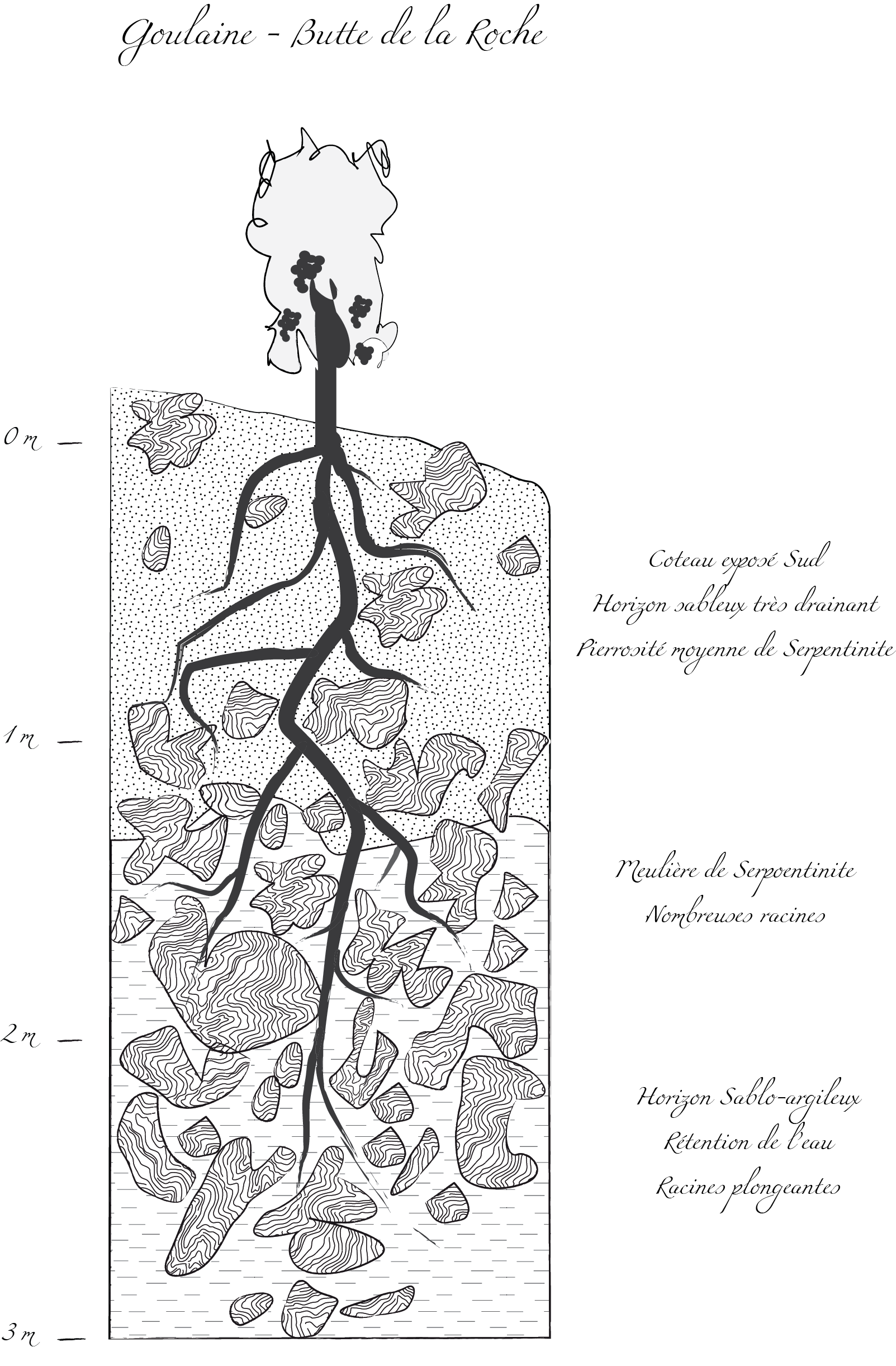
This terroir’s very light sandy soils gives wines with a lovely round texture, and notes of citrus and very ripe fruits. The mild microclimate created by the surrounding marshes and the south-easterly facing direction of the slope make this the terroir with the earliest grapes in the whole appellation.
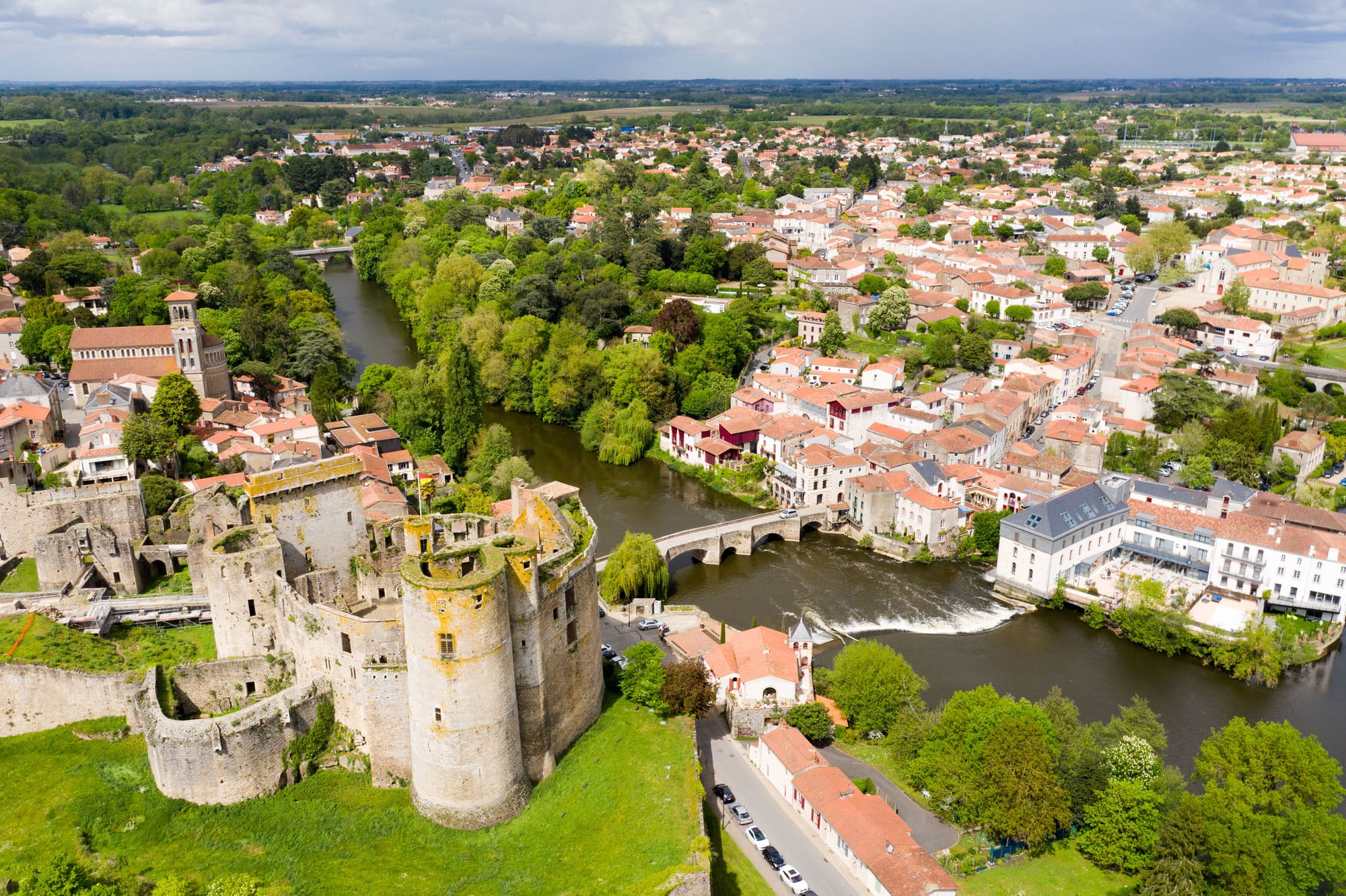
Clisson is Muscadet’s prettiest town with its Breton influences and romantic Italian feel. Its rock festival has also brought it fame.
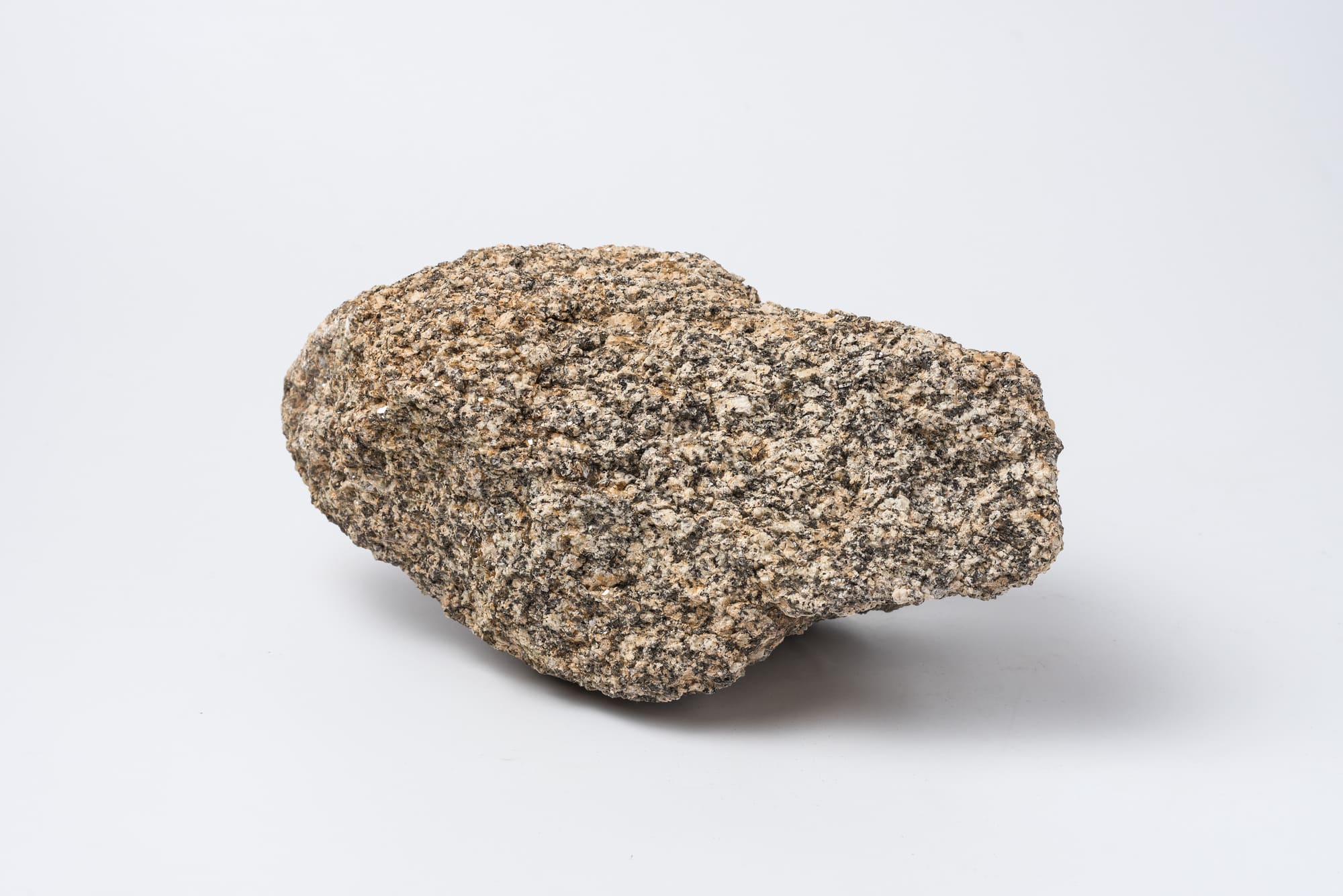
The vines grow on granite, the rock of Brittany, which was used to build our houses in the past.
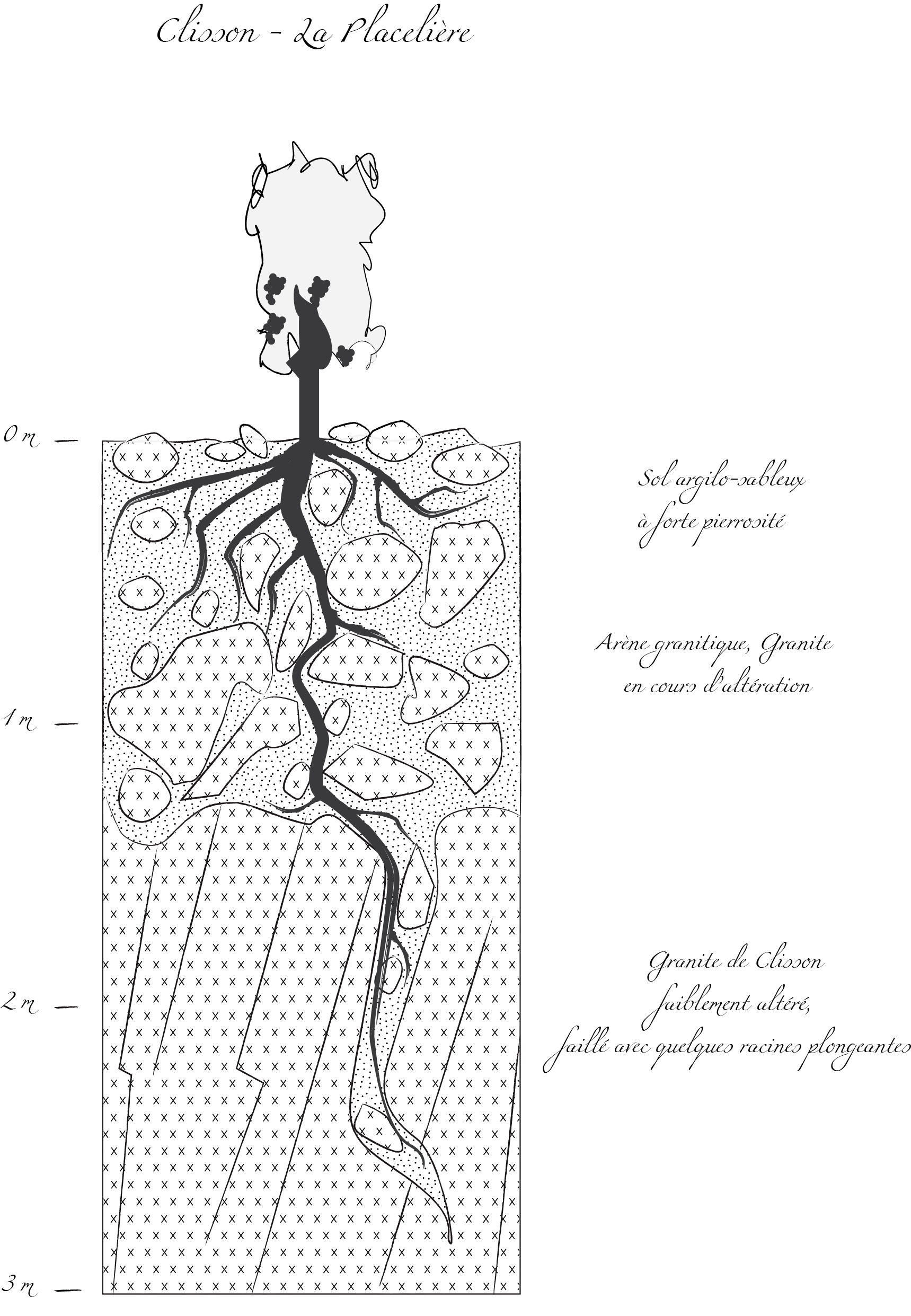
In the ground, decomposed granite bedrock, weathered into a mixture of sand and clay, can be found alongside granite blocks. This results in vines with deep roots, a constant supply of water and minerals and early ripening grapes. The vineyard’s southerly location gives us sunny wines with a creamy texture and notes of smokiness, candied citrus and sweet spices.
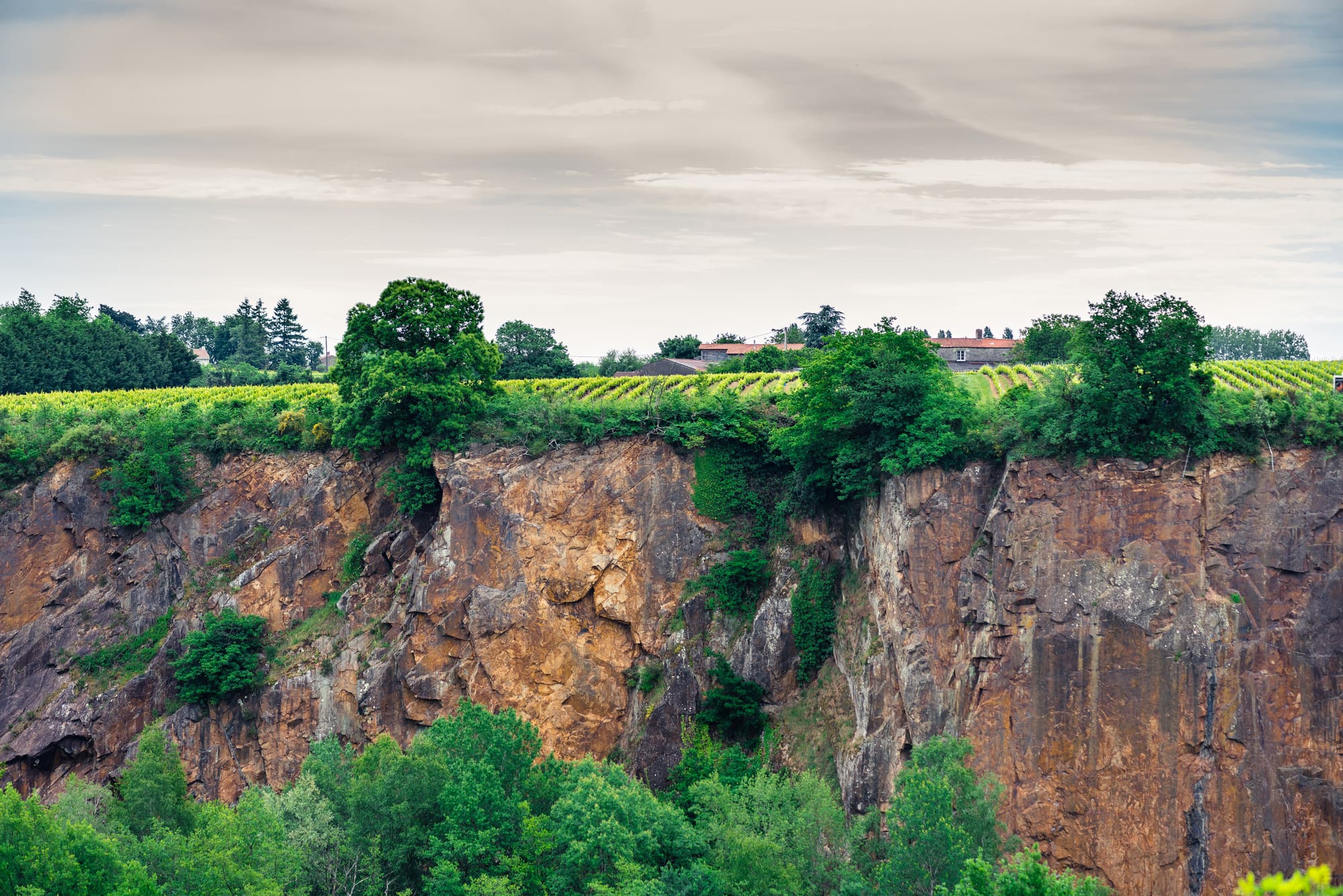
Château-Thébaud is our village, perched above the river Maine and its sheer cliffs.
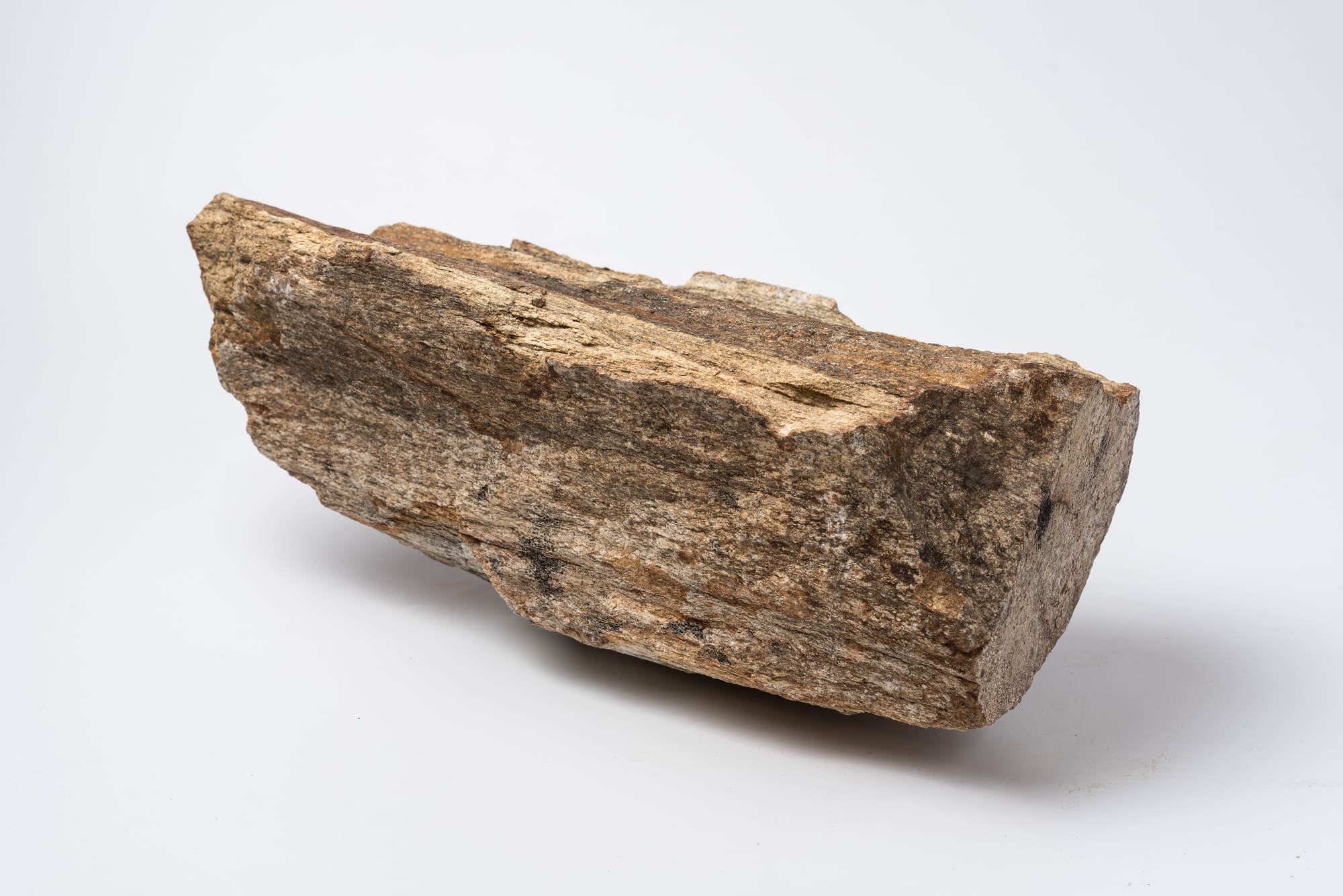
The vines grow on bedrock of gneiss from L’Aulnaye, a vineyard slope overlooking the confluence of the rivers Sèvre and Maine.
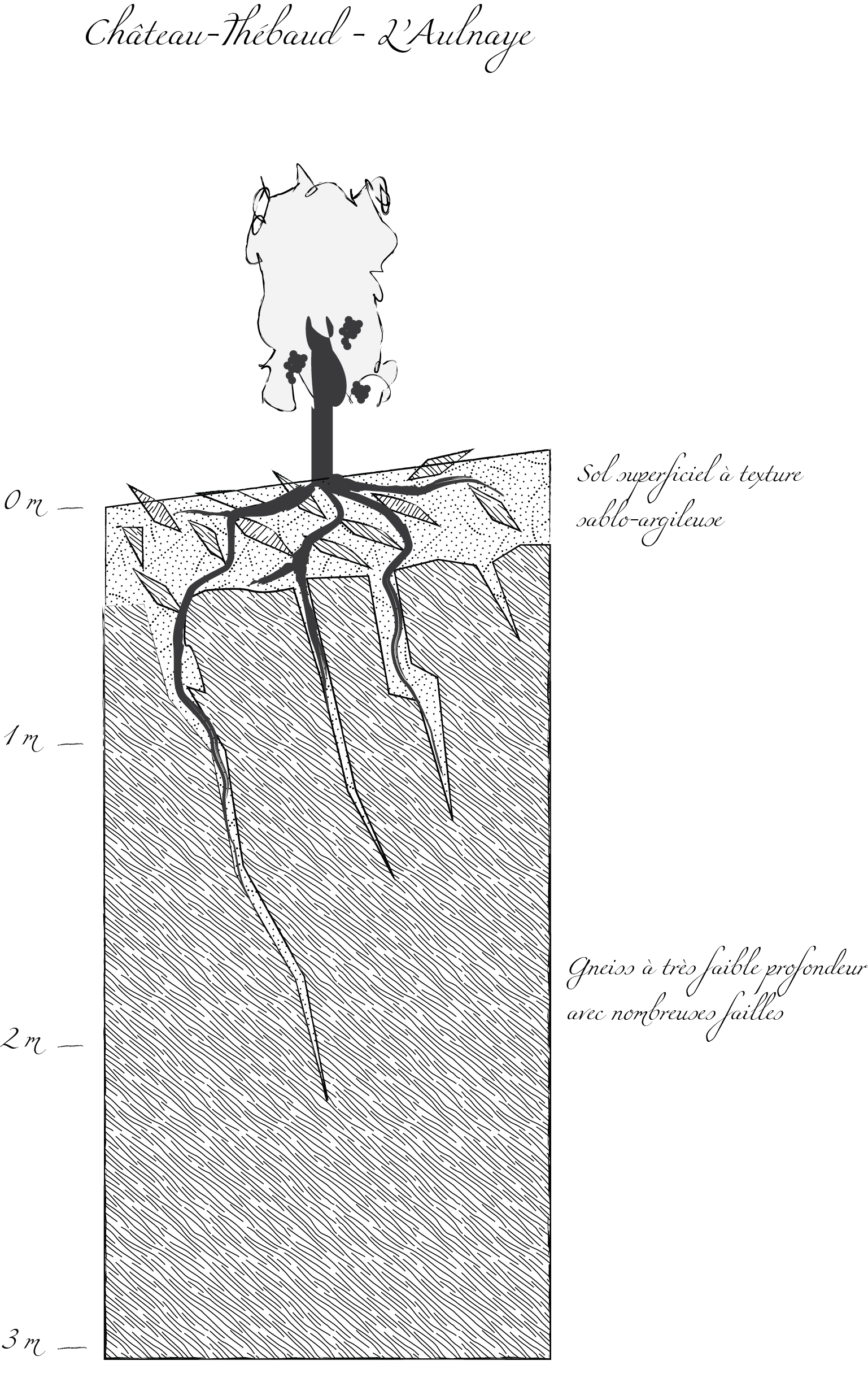
The weathering of bedrock has resulted in shallow soil that gives moderately early grapes and is naturally draining. The ripening conditions are perfect and this presence of clay in the soil ensures good balance and freshness in the wines. Château-Thébaud wines are distinctive for their fresh aromas (citrus, fennel, anise, menthol), and their mineral and saline notes.
Our Cru Clisson, Château-Thébaud and Goulaine are finely crafted dry white wines produced from exceptional plots and organically farmed old vines which we harvest by hand. They are made using natural yeasts and aged for several years on lees, in underground vats which are unique to our area. These wines are ideal for cellaring and gastronomic cuisine.
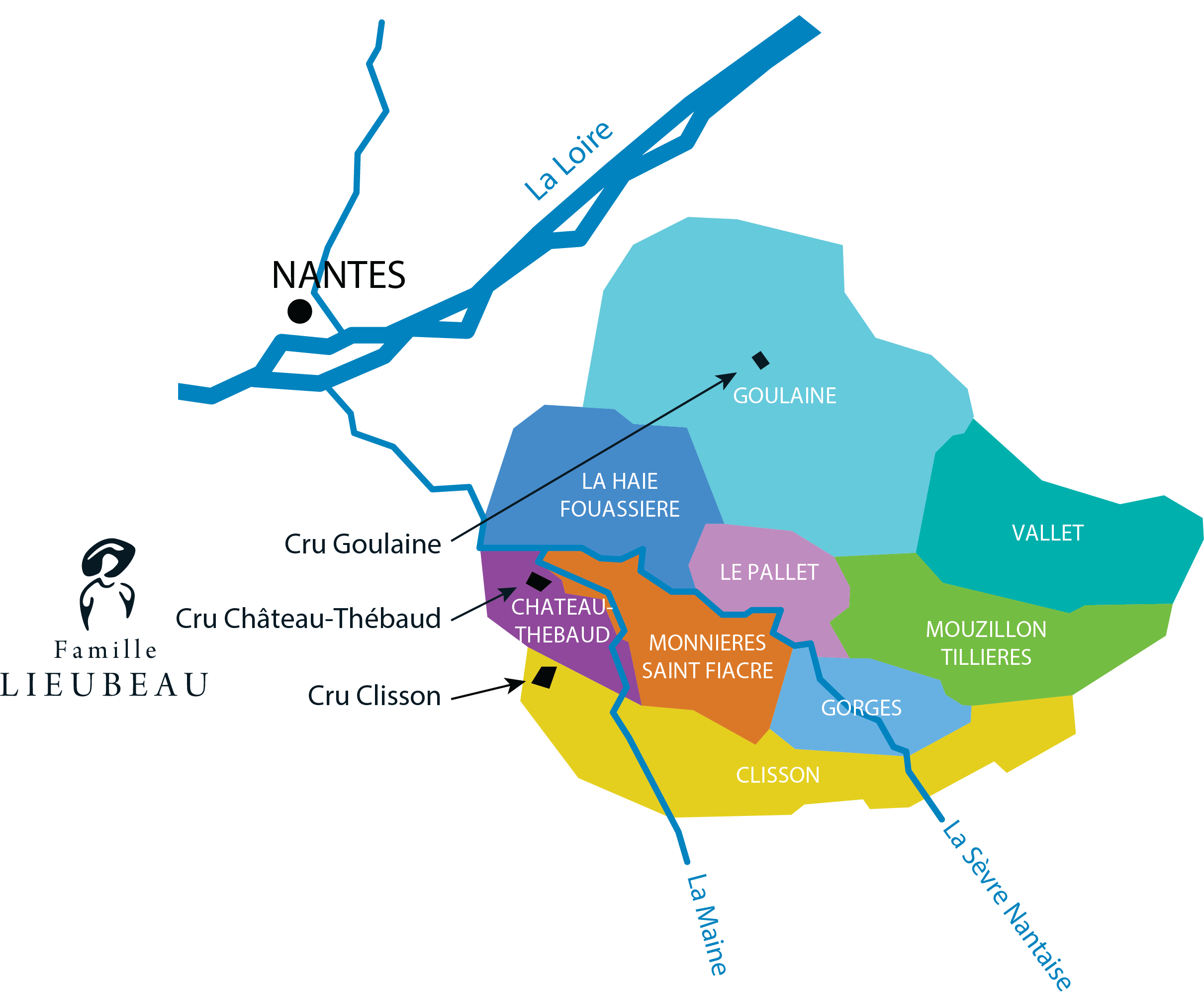
The Crus Communaux are the finest expression of Muscadet’s unique qualities and the diverse nature of our terroirs. Each bearing the name of a village and characterised, in particular, by the bedrock on which they grow, these wines are the result of a collective effort initiated in the 1990s by our father Pierre along with other winegrower friends. As the heirs to this heritage, we are today highly committed producers and front-line ambassadors of these wines.
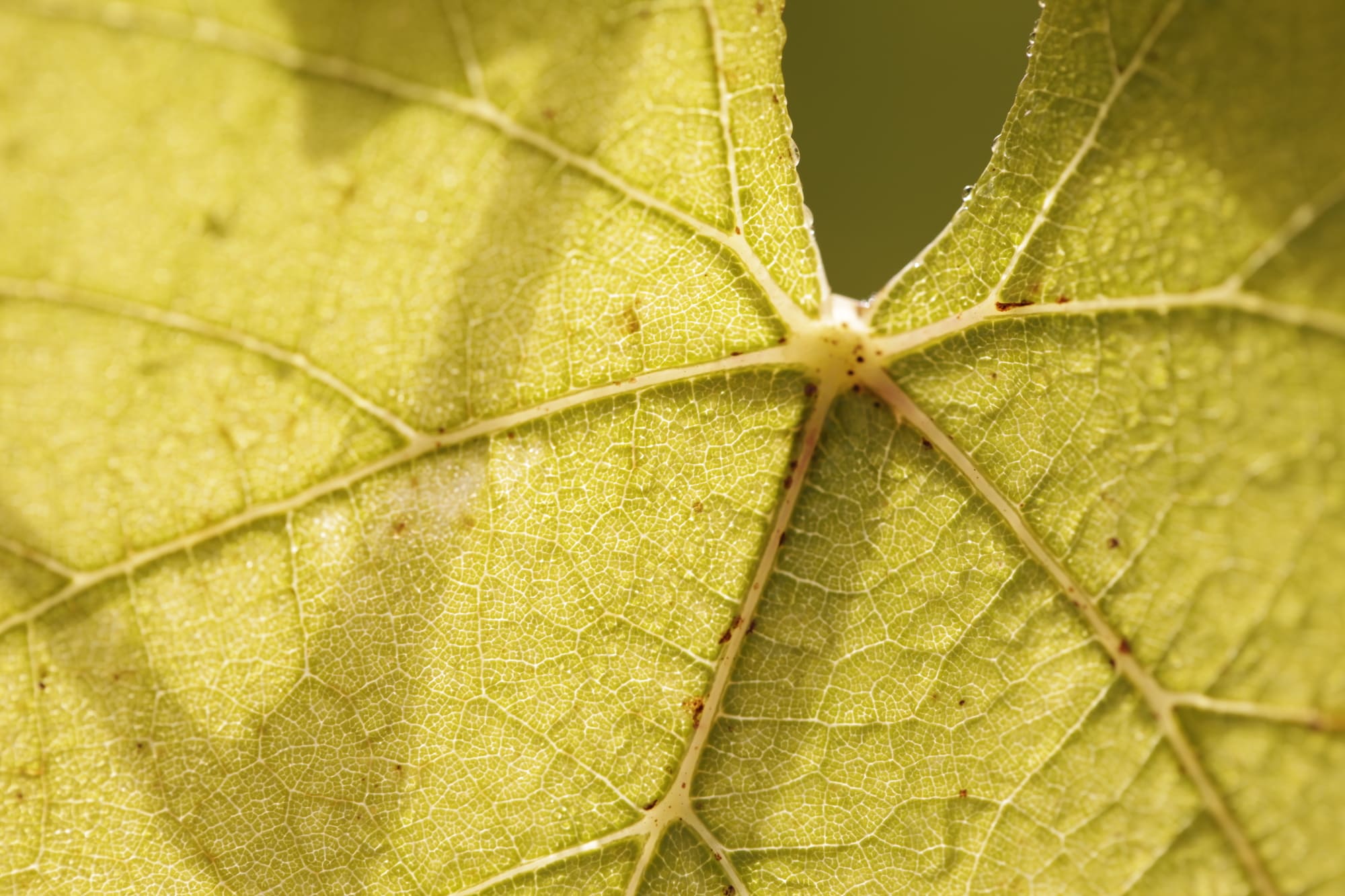
The Melon de Bourgogne variety gives Muscadet its identity. It is unique to our area, with the exception of a few hectares planted in its region of origin and in Oregon. Developed by Burgundian monks of the Abbey of Cîteaux in the middle ages, Melon belongs to the Noirien family of grapes along with the Pinot varieties, Chardonnay, Chenin, Gamay, Auxerrois and Romorantin. Muscadet is a dry white wine and the Melon variety is recognisable for its round leaf, hence the name.
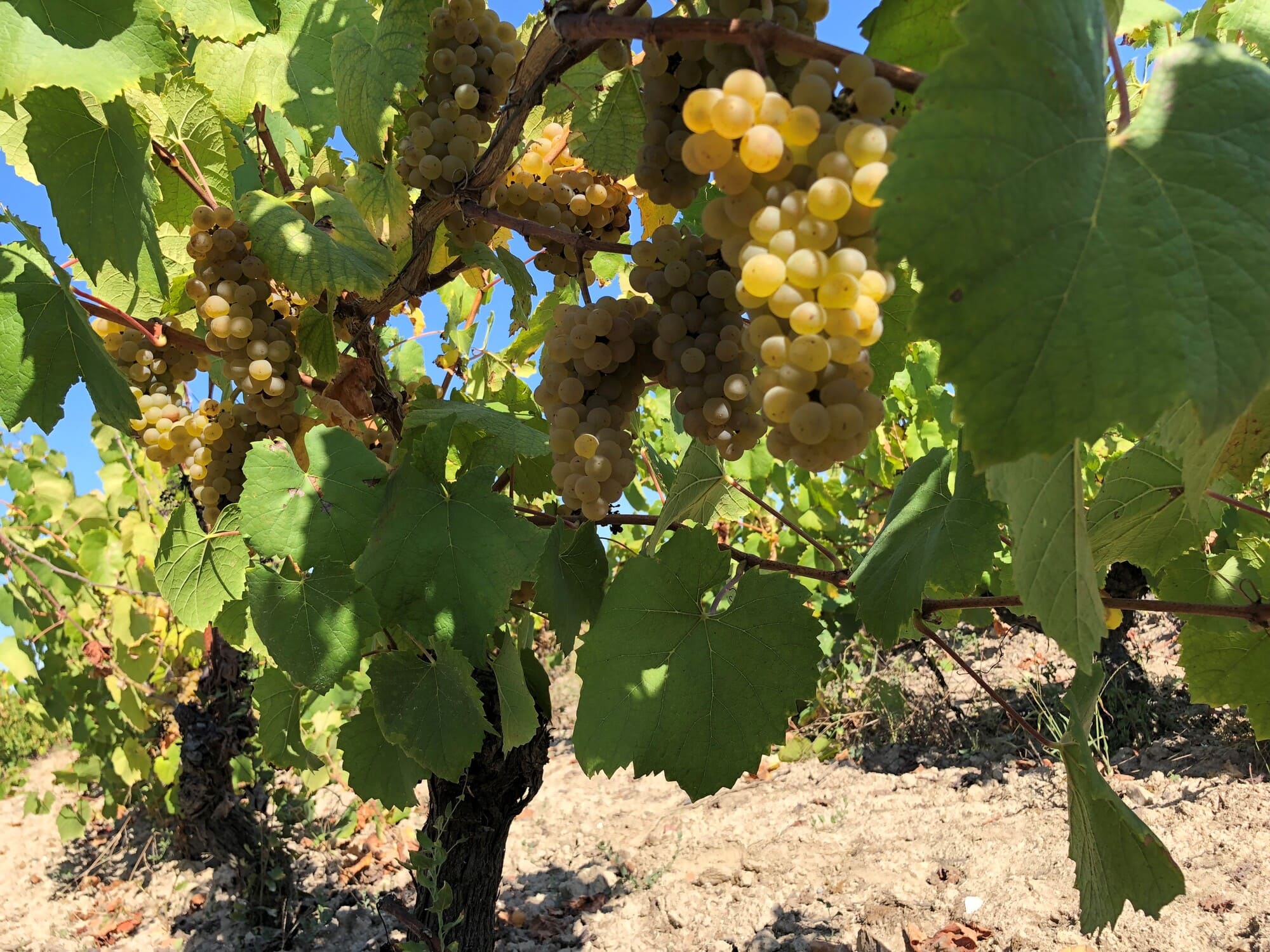
Other grapes varieties also grow in our vineyards. Folle Blanche is a native grape which has historically always been grown in Nantes’ vineyards. Its wines are lemony, saline and mineral, and an ideal match for oysters. To illustrate the beautiful diversity of the Loire Valley, we also produce our own range of fresh, fruity and elegant varietal wines, from Chardonnay, Sauvignon, Cabernet Franc and Pinot Noir.
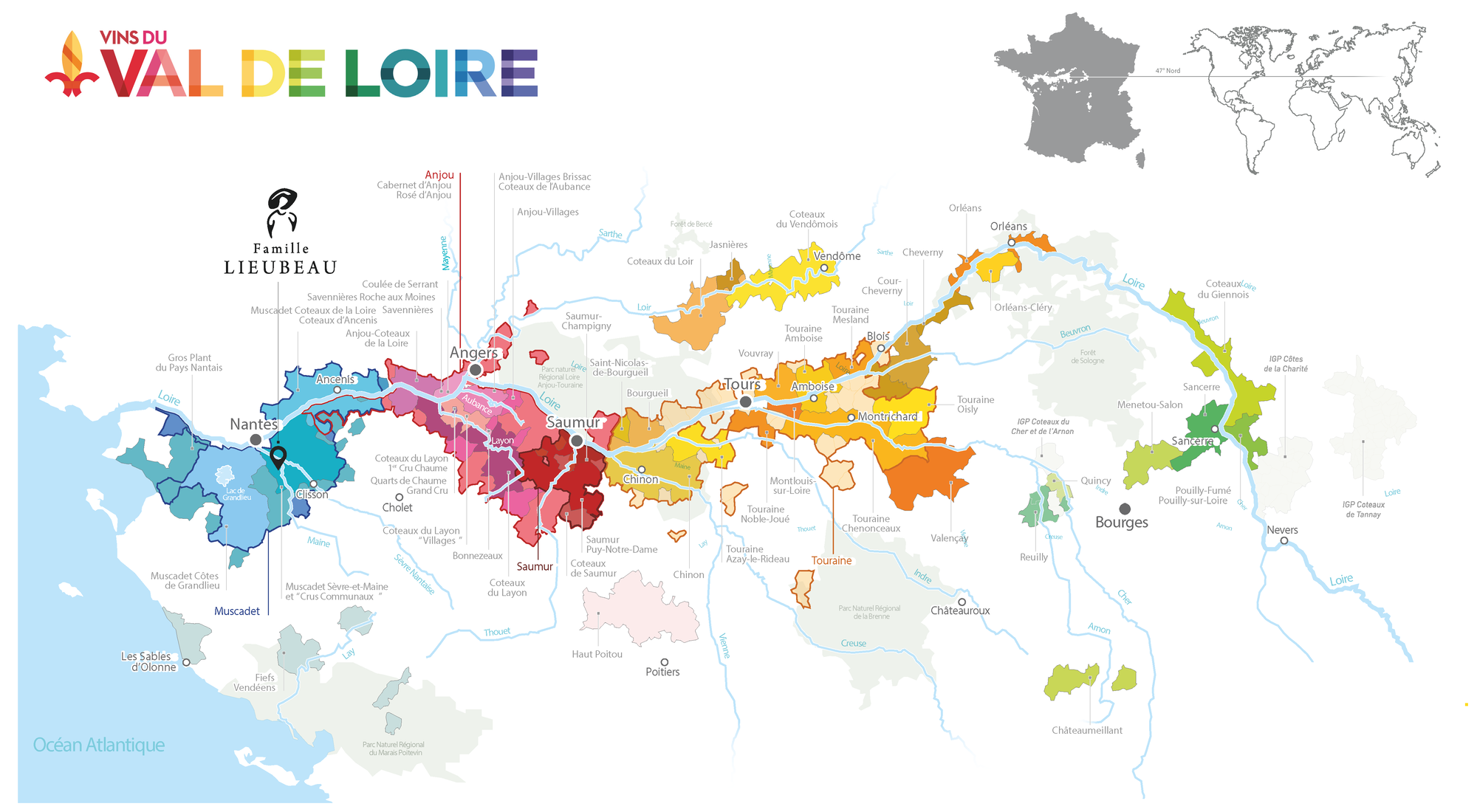
We are winegrowers in the Muscadet wine region, at the mouth of the Loire close to the Atlantic, just south of Nantes and Brittany. Nantes, Muscadet’s capital, is distinctive for this mix of influences from the Loire Valley, Brittany and the Atlantic. We are a land of water. Rivers and lakes irrigate our vines naturally and keep the climate temperate and our wines fresh, while the sea gives us fantastic food pairings and carries our bottles to the isles and other far-away places. For producing serious white wines, the region is ideal.

Our roots are in Nantes, Muscadet’s capital, which is where every member of our family was born. It is a youthful, vibrant and attractive place – a people’s city with real convictions, and a fantastic fusion of nature and culture. With local industries like market gardening, farming, fishing, salt production, and biscuit making, the city and the surrounding region are bursting with great local produce, which the vibrant gastronomic scene employs with great talent. It was the birthplace of Jules Verne, but it is the Great Elephant of the Machines de l’Ile which is Nantes’ icon today.
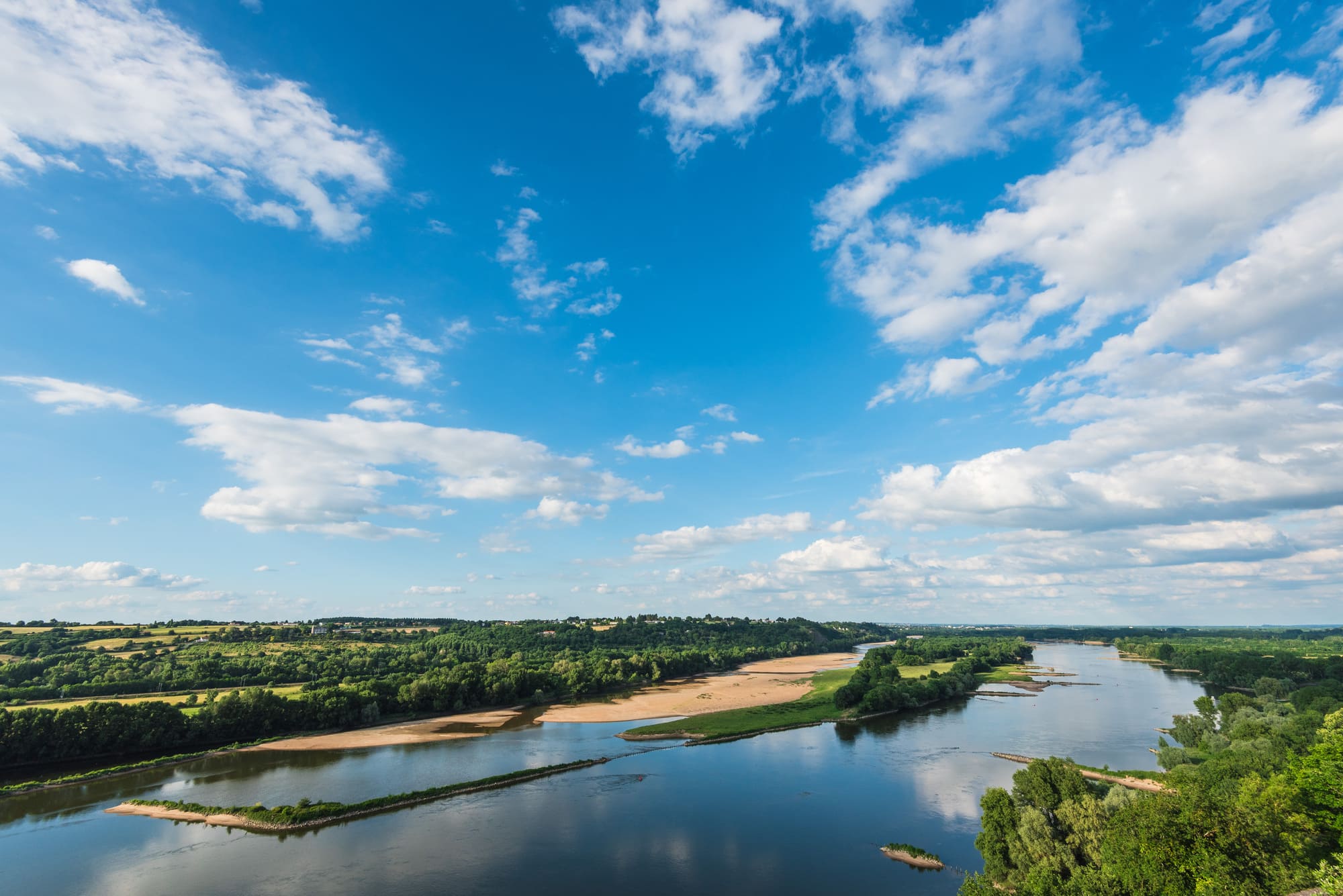
The Loire is our river and its tributaries shape our landscapes. With our winegrower friends of the Loire Valley, we share a respect for the environment and a beautifully diverse range of grape varieties, subsoils and colours of wine. In this region, we strive for freshness, fruit and elegance.
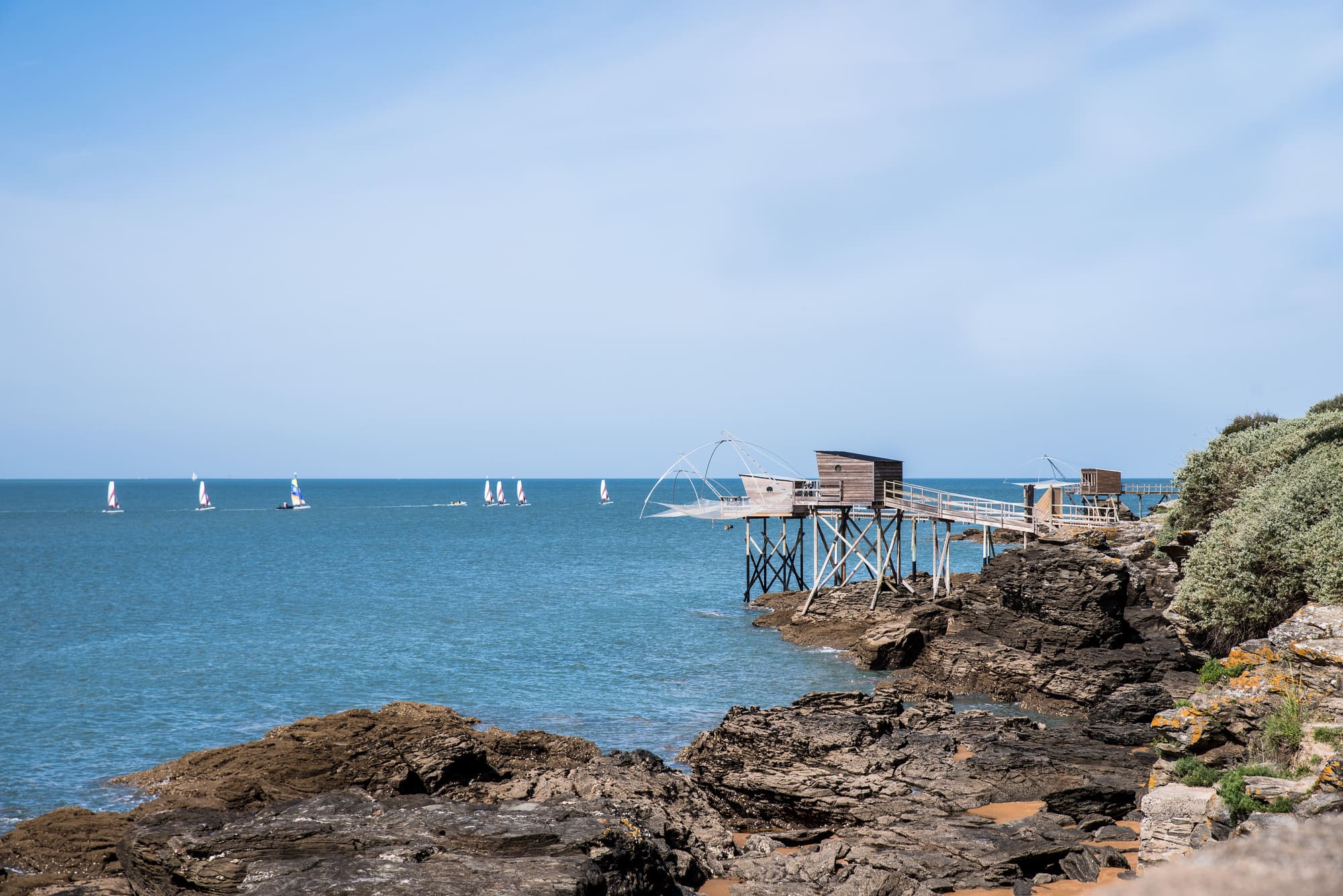
The Atlantic nurtures our wine region. It tempers the climate of our terroir and the winds from offshore dry and cool our vines. The sea brings a saline character to them and is an endless source of stunning gastronomic associations. It inspires us to adventure and travel and transports our bottles to the isles and other far-away lands.
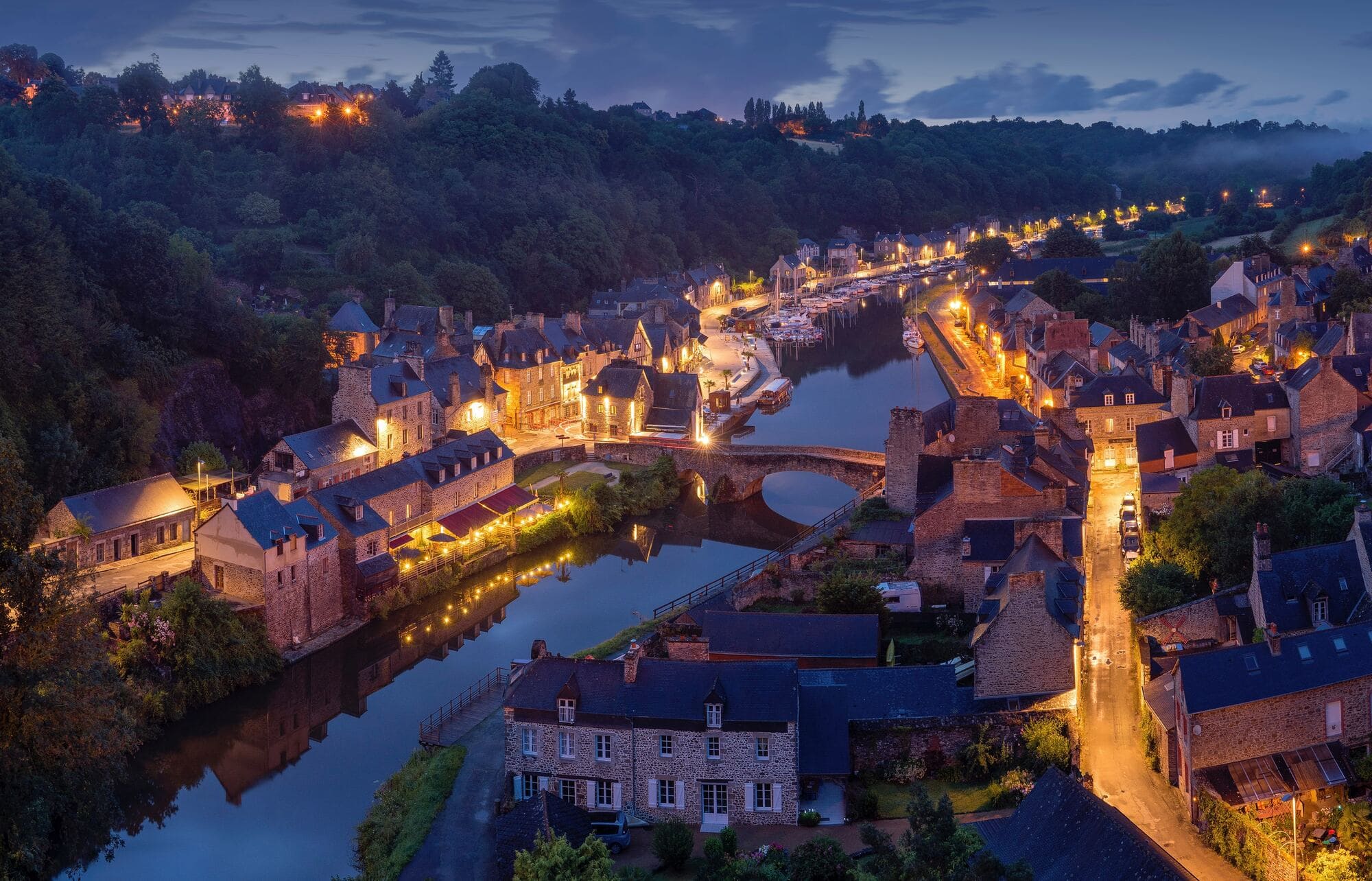
Brittany is a pillar and bastion for us. The vines of the Nantais vineyards are rooted in the rocks of its ancient mountain range, the Armorican Massif. These volcanic and metamorphic rocks formed millions of years ago and have many different forms, like granite, gneiss, schist, gabbro, serpentinite and amphibolite.

This website uses cookies so that we can provide you with the best user experience possible. Cookie information is stored in your browser and performs functions such as recognising you when you return to our website and helping our team to understand which sections of the website you find most interesting and useful.
Strictly Necessary Cookie should be enabled at all times so that we can save your preferences for cookie settings.
If you disable this cookie, we will not be able to save your preferences. This means that every time you visit this website you will need to enable or disable cookies again.
This website uses Google Analytics to collect anonymous information such as the number of visitors to the site, and the most popular pages.
Keeping this cookie enabled helps us to improve our website.
Please enable Strictly Necessary Cookies first so that we can save your preferences!